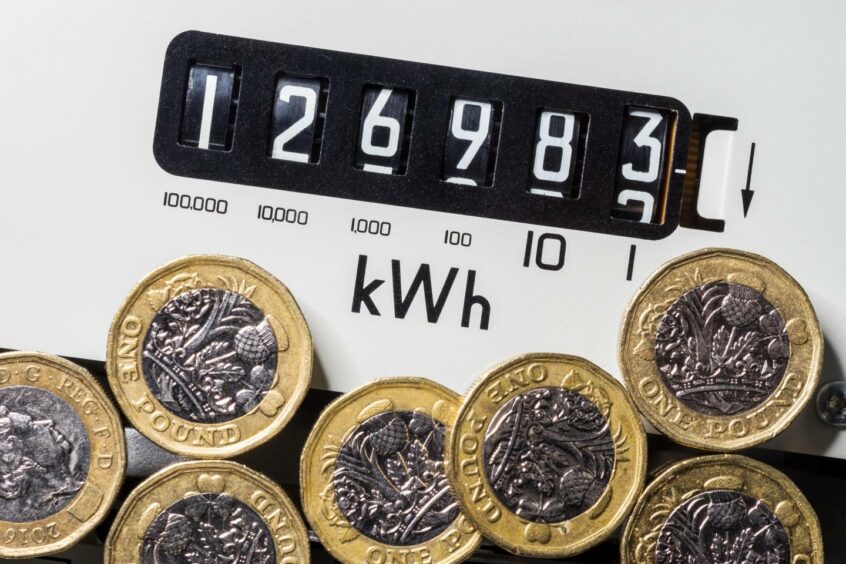
Combined bills for households across the UK will surge beyond £100 billion when the new price cap takes effect in October, according to new research.
The data, from North Sea trade body Offshore Energies UK (OEUK), compares gas and electricity bills to around £36bn across the country in 2021.
OEUK has published its 2022 economic report, setting out that energy prices account for half of UK inflation as the country is heading towards a recession.
It states: “Businesses are even more exposed to changes in [global] gas prices as there is no protective price cap in place for non-domestic energy use … If it was to be assumed that average spend this year was to treble (roughly the same rate of increase as the domestic price cap) then overall spend on electricity and gas by industry and businesses could rise to £108bn, from £36bn last year.”
The UK relies on imports, which the OEUK said contributes to the surge in domestic annual bills rising from £1,300 to £3,500 in less than 12 months – with more price rises predicted in 2023.
The UK could be at risk of energy shortages this winter and the report warns that global prices could remain high for at least three years.
Asked about these potential shortages, OEUK market intelligence manager Ross Dornan said: “I think it’s something that we’ll have to manage as best we can and keep a really close watch on, but our industry’s contribution means we are in a much better position.
“Things get tight quite often in winter, there are capacity warnings issued by the grid, there have been some capacity notices issued by the National Grid this summer, which is quite rare, so that tells you if there are supply concerns during the summer at some points, it raises some concerns through the winter as well.”
Mr Dornan also spoke about the risk of supply disruption outside the UK as different countries vie for resources like LNG (liquefied natural gas).
UK firms can’t control price of gas
With energy bills rising and uncertainty surrounding whether the UK will have the supply to meet the public’s demand, there are talks on whether the government will implement a cap on the price of gas.
OEUK representatives were asked if their member companies would agree to sell gas at lower rates to utility firms and power generators in the UK.
The trade body representatives were spilt on the organisation’s stance on the matter.
On one hand, it was said that companies are in talks with the government and on the other, it was said that increasing supply was the only way to lower prices legally.
OEUK’s acting chief executive Mike Tholen said: “I know companies are talking individually with government at the minute, we have to be very careful as an industry to discuss price collectively with government as it is on the edge of being anti-competitive, something in which I don’t want to go to jail for and would not want any of my colleagues to either.”
While energy policy manager for OEUK, Will Webster, said: “We’ve got to not lose sight of the fact that at least 50% of the gas we use in the country is imported and that really complicates any idea that we can try and control the wholesale gas price.
“After our on production we have Norway, we have LNG, etc. and we are very interconnected in European markets and we rely on their storage, so that’s already quite a barrier to that discussion and that is before you even get to who is going to get the supposedly cheap gas.
“So we think that’s a really complicated thing to do and actually doesn’t really help either because the market is there to clear supply and demand so if you put a cap on, of any sort, you risk ending up with some kind of shortage, one way or another.”
Natalie Coupar, OEUK’s communications director, confirmed the trade body’s stance on the matter, saying: “As a member body, we genuinely don’t stray into those type of commercial conversations because we genuinely would be straying into the breaking of competitor law, so it may well be that there are discussions ongoing.
“I think what members want to see us all doing though, is making the case for the UK to reduce its import dependency.
“I can’t get into the details of any conversations being had because we do not know what they are or what the output of those will be.
“Our focus would be on reducing that import dependency piece because at the end of the day, that is the best answer for the UK’s supplies of energy, both the cleaner supplies that we increasingly need to get to and the oil and gas we’ll need during that time.”
More drilling does not mean lower bills
The argument of increasing domestic fossil fule production not correlating with lowering home energy bills, brought up by Mr Webster, is not a new one.
Climate campaigner Tessa Khan recently took to Twitter to criticise new prime minister Liz Truss’ promise of granting over 100 north sea licenses, explaining that the price of fuel is determined by an international market.
Khan wrote in a 13-part thread: “More domestic oil & gas production, whether in the North Sea or via fracking, will not affect the price we pay for it, which is determined by an international market. This has been accepted and acknowledged by both the UK Govt and industry.”
2/ More domestic oil & gas production, whether in the North Sea or via fracking, will not affect the price we pay for it, which is determined by an international market. This has been accepted and acknowledged by both the UK Govt and industry.
— Tessa Khan (@tessakhan) August 30, 2022
Greenpeace UK’s chief scientist Dr Doug Parr said on the subject: “Unleashing a North Sea drilling frenzy isn’t a plan to help bill payers but a gift to the fossil fuel giants already making billions from this crisis. New oil and gas could take a quarter of a century to pump out, will be eventually sold at global prices, and have no real impact on energy bills yet still fuel the climate crisis.”
However, if more drilling was to go ahead, protest groups would find it “nearly impossible” to challenge the government in court, as Aberdeen University’s Dr Daria Shapovalov told the Westminster Energy, Environment & Transport Forum last week.


 © Supplied by OEUK
© Supplied by OEUK © Supplied by OGUK
© Supplied by OGUK